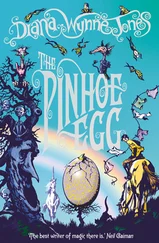‘Which law?’
‘The one from last year, that says bastards are entitled to an equal share of their father’s estate.’
27
‘Ah,’ Brunetti said, fighting to hide his astonishment. Uncertain that he could keep his voice level, he pursed his lips and frowned, as if making note of a detail that might be interesting, or might not be.
‘Do you remember when this conversation took place?’
He watched as Cresti worked out the time, assuming a bland look of infinite patience while he waited for the lawyer to answer.
‘It must have been in July some time. I remember because I’d gone out to try to find a birthday gift for my mother, and I met Signora Cavanella on the street.’
Brunetti had smiled amiably at Cresti’s mention of his mother, as though he’d done something special and virtuous by having one. ‘That’s when she asked you?’
Cresti nodded a few more times than necessary. ‘Yes, she suggested we have a coffee, and she told me she’d read something in the paper a few days before about this law, and she wanted to know what it meant.’
‘What did you tell her?’ Brunetti asked, now in full possession of his voice and with the conversation where he wanted it to be.
‘I told her it was quite simple: if the child could prove his parentage, then he or she had full rights to an equal portion of the estate. Along with the legitimate children.’ Cresti flashed a smile at Brunetti.
‘That’s all?’
‘For once, Commissario,’ Cresti said, ‘it is a law that is quite concise and easy to understand.’
‘Did she understand your explanation?’
‘I think it would be difficult’ – flash, flash – ‘for anyone not to understand.’
‘Did she ask you anything else?’
Cresti made the mistake of fidgeting in his chair so that he could remove his eyes from Brunetti’s and look down as he did so.
‘Did she ask you anything else, Signor Cresti?’ Brunetti asked again, hoping that his failure to refer to him by his professional title would remind Cresti of what might happen if Brunetti were to alert the union of lawyers to Cresti’s visit to the hospital.
‘Oh, a few things,’ he said, as if allergic to telling a policeman anything important.
‘Did she ask you anything else?’
Trapped, Cresti said, ‘She asked if it would pass to the heirs of the child.’ Then, after another nervous smile, ‘You know, if the heir – the bastard, that is – had a child, would that child inherit?’
Calm, calm, calm. Brunetti asked, as if intrigued by the chance to speculate, ‘That’s an interesting question. Would it, as it were, skip a generation and pass to the next?’
‘That’s it exactly, phrased perfectly, Commissario: if the bastard had a child – would it pass to that child?’
‘What did you tell her?’
‘I couldn’t tell her anything. I hadn’t studied the law, so I didn’t know the answer.’
‘What did you tell her?’
Cresti smoothed his hair back and left his hand at the base of his skull, as if to encourage his brain to come up with an answer. ‘I couldn’t answer, could I, since I wasn’t sure?’
‘What did you tell her?’
Cresti took his hand away and locked his fingers on the arm of his chair. ‘I told her that it probably would pass to the child’s heirs.’
Stupidity and greed, Brunetti told himself, stupidity and greed, and a willing helper in a lawyer who took advantage of the first to nudge his non-client towards the second.
‘I see,’ Brunetti said. Then, because he couldn’t stop himself, even though he knew there was no sense in doing so, he asked, ‘What did you think when her son died?’
Cresti flashed another smile, but this one was meant to show his surprise at Brunetti’s question. ‘I thought how unfortunate she was.’ His voice deepened into the solemnity so often used to give voice to grief and the tragedies to which the world exposes us, poor, frail humans that we are. ‘The poor woman, to lose her only child like that.’
‘And she his only relative,’ Brunetti could not stop himself from answering. He got to his feet. ‘Thank you for coming in, Signor Cresti. I’ll call you if we need any further information.’
Cresti’s face went blank with genuine surprise. He was being let go. He had said what he had said, and this man was letting him leave. He started to push himself to his feet, but one of the pockets of his jacket hooked itself on the arm of the chair. His upward motion pulled the chair from the floor, then the pocket ripped free. Cresti lost his footing for a moment, flailed his arms in the air, and regained his balance.
Brunetti stood behind his desk, unwilling to help, nodded when Cresti said goodbye, and watched the lawyer leave the room.
He picked up his phone and dialled Signorina Elettra’s number. When she answered, he said, ‘Could you have a look at Signora Cavanella’s bank statements again and tell me the date when those payments arrive?’
Responding to the tone of his voice, she said only ‘One moment.’ He looked at his watch and saw that today was the fifth.
She was back. ‘It usually arrives on the first of the month, Commissario.’
‘Has it come this month?’
A few seconds’ delay, and then she said, ‘No, it hasn’t.’
He thanked her and replaced the phone.
All that remained was to talk to Lucrezia Lembo again, but this time he wanted to do it himself: no rosary, no Madonna, no religious excess of any sort. He wanted numbers and dates and facts, and she would be able to give them to him.
He walked. It was late afternoon, the day was drawing down, and it looked as if it was coming on to rain. As he passed the campi and buildings between the Questura and the Accademia Bridge, which was the only place where he could cross the Grand Canal and backtrack to her home, Brunetti constructed a narrative based on random facts and even more random possibilities. When he checked the report from the crew that took Signora Cavanella to the hospital, he had seen, but not then noted, that she had been found on the steps of a house only a few minutes from the Lembo palazzo . The payment into her account had not arrived this month. Ana Cavanella had ceased working for the Lembo family four decades ago and had received a monthly payment since that time. She lived in a house owned by a member of the Lembo family in which her child had the right to remain for the duration of his lifetime. The King of Copper had left his wife of thirty-four years for a younger woman, by whom he had a child, another girl, only to have the woman leave him soon after the death of that child.
Lucrezia was the only one left: her parents were dead, her half-sister had drowned, and her other sister had moved to a foreign country. Signora Ghezzi had said all she was going to say, Ana Cavanella was not to be trusted to tell the truth, and poor silent Davide couldn’t tell it, even if he had known what truth was.
Brunetti heard the rain before he saw it, heard it in the squelching of his feet on the pavement. He heard it, he saw it, and when he put his hands to his head, he felt it. Sure enough, at the bottom of the Accademia Bridge he found three Tamil umbrella sellers – he often wondered if they were freeze-dried and popped back to life at the first drop of rain, their hands laden with five-Euro umbrellas. He committed a crime by buying an umbrella from one of them, gave the man ten Euros and told him to keep the change, then turned down towards the Salute. In Campo San Vio he turned right, and then into the calle .
He rang the bell, keeping his finger on it until he heard it bleating away inside. He removed it. Silence. He pushed it again, shifted his feet to make himself more comfortable while leaning against it. The noise went on for a very long time. At last he heard a sound from the courtyard, released his finger, and the noise turned into the sound of footsteps approaching the door.
Читать дальше












